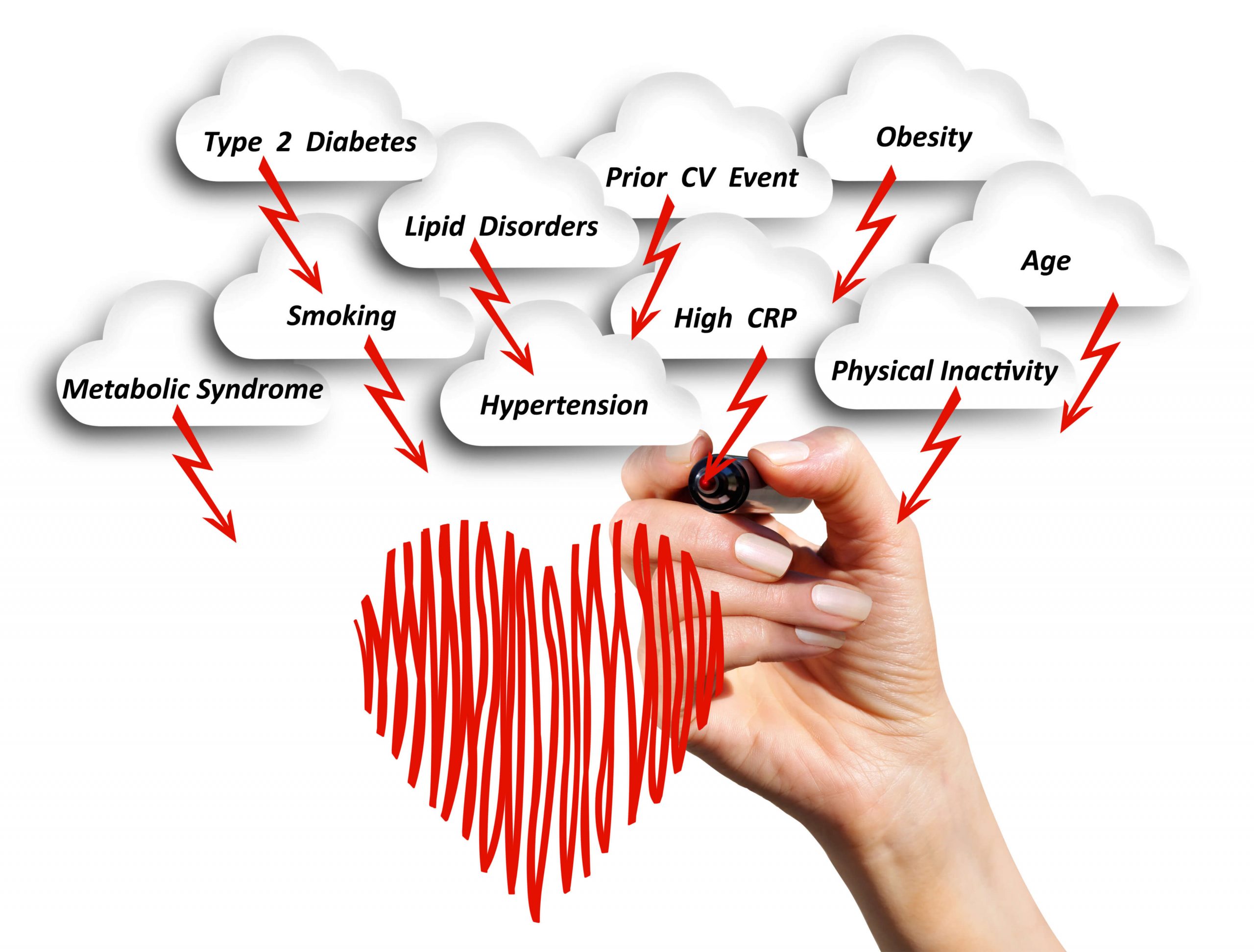What is Cardiovascular Disease?
Cardiovascular disease covers a range of conditions. Four of the most common cardiovascular diseases are atherosclerosis, heart failure, arrhythmia, and heart valve problems. Atherosclerosis, also known as Coronary Heart Disease, occurs when plaque builds up in the arteries, reducing blood flow. In serious cases, this narrowing of the arteries can create blood clots, which can lead to a heart attack or stroke.
Unlike a heart attack, heart failure does not indicate the organ has stopped working altogether. Heart failure occurs when the heart’s ability to pump is weakened. This weakness may result from a faulty valve, high blood pressure, diabetes, lung disease, or even sleep apnea.
Patients diagnosed with arrhythmia have an irregular heartbeat—it can be too fast, too slow, or generally erratic. One of the worrying long-term effects of Covid-19 is that it can cause arrhythmia. Other causes include smoking, drug abuse, certain medications, diabetes, and high blood pressure.
Heart valve problems affect blood flow—the valve may not open fully or not close completely. The causes of heart valve problems are generally either congenital (abnormalities present at birth) or linked to aging.
The symptoms of cardiovascular disease depend on the condition:
Atherosclerosis
Chest pain or tightness
Shortness of breath
Pain and numbness in the limbs
Arrhythmia
Fluttering in the chest
Racing or slow heartbeat
Dizziness/Fainting
Heart Valve Problems
Pale skin color
Swelling in the legs/abdomen
Fatigue
Metabolic Syndrome and Metabolic Disease
Metabolic Syndrome is a diagnosis given to patients with three or more related health conditions that increase their risk of heart disease. These conditions include:
- Obesity (in particular around the abdomen)
- Type II Diabetes
- High blood pressure
Metabolic disease results when the body becomes chemically imbalanced and produces too much or too little of a particular substance. Metabolism is the process that converts the food you eat into energy to fuel your body. A metabolic disorder or disease is a breakdown of this process and can take many forms. A compromised metabolism may be due to:
- Organ failure
- Hormone or enzyme deficiencies
- Poor diet
Risk Factors for Cardiovascular Disease
So who is most at risk of developing heart disease? Some factors can’t be changed, including age, genetic background, and ethnicity. But there are many other risk factors you can control through nutrition, exercise, and lifestyle changes. As part of the Caregiver Clarity Call, I can help identify your risk profile and develop a personalized treatment program for you.
Do you have…?
Obesity
High Blood Cholesterol
High Blood Pressure
Smoking
Diabetes
Stress
Alcohol
Recommendation
Weight management program, exercise
Dietary, Lifestyle changes
Medication, diet, and exercise
Mindfulness, meditation
Diet and exercise program
Meditation, herbal supplements, exercise
Lifestyle changes
Common Cardiac & Metabolic Disorders
Some of the more common conditions associated with heart disease and metabolic disorders include Hypertension, Gout, and Hyperlipidemia.
Hypertension
Hypertension, or high blood pressure, is estimated to affect 1 in 2 adult Americans, and often there are no symptoms. Narrowing of the arteries increases your blood pressure and can eventually lead to a heart attack or stroke. At my functional medicine clinic, I take regular blood pressure readings as part of a comprehensive treatment regime—treating hypertension through a combination of medication, a healthy, anti-inflammatory diet, and other lifestyle changes include exercise and less alcohol consumption.
Gout
Gout is a type of Arthritis due to a build-up of crystallized uric acid in the joints. It causes pain and swelling of the affected joints. Gout occurs when the kidneys fail to remove excess uric acid from the bloodstream, causing it to deposit in the joints, particularly the feet and toes. Risk factors for Gout include obesity, kidney problems, and genetics.
Hyperlipidemia
Hyperlipidemia is the medical term to describe abnormally high levels of fat (lipids) in the blood. The two major types of lipids found in the blood are triglycerides and cholesterol. A high fat, high sugar diet can increase your blood cholesterol and triglycerides to unhealthy levels, clogging up your arteries and increasing your risk of severe heart issues. As part of your Caregiver Clarity Call, you’ll have a blood test done to establish your lipid profile, including levels of damaging LDL cholesterol and beneficial HDL cholesterol.
Inherited Metabolic Disorders
Inherited metabolic disorders are the result of a defective gene that creates an enzyme deficiency. Children develop these disorders when both parents are carriers of the defective gene.
Even though these genetic disorders are relatively rare, there are many of them, including Lysosomal storage disorder, Phenylketonuria, galactosemia, and Hemochromatosis. Symptoms vary but may include fatigue, abdominal pain, weight loss, and jaundice.
Improved genetic testing means it’s possible to screen at birth for many of the more common inherited metabolic disorders, but not all of them, unfortunately. Sometimes symptoms can be brought on by medication or a minor illness. Treatment for these genetic conditions includes the elimination of problem foods, enzyme replacement therapy (ERT), and special diets to help remove toxins from the body.
The Cardiometabolic Diet
One of the primary goals of functional medicine is to diagnose and treat conditions before they get critical and require drastic medical or surgical intervention. Proper nutrition plays a crucial role in my work as a functional medicine doctor in Arlington, VA and Dana Point, CA. I often see overlapping symptoms in my patients—they may have both heart and metabolic problems. The cardiometabolic diet is a food plan designed for those with multiple risk factors to reduce inflammation and stress on the body’s organs, including the heart, liver, kidneys, and pancreas.
Can Cardiovascular Disease be Cured?
Heart disease is an inevitable part of aging, and sadly there is no miracle cure. However, a holistic treatment regime involving diet, exercise, and lifestyle changes can significantly benefit your personal health and extend the length and quality of your life immeasurably. Take the first step to becoming your own healer with my Creative Clarity Call. Together, we can address the underlying issues that lead to conditions such as cardiovascular and metabolic disease.





